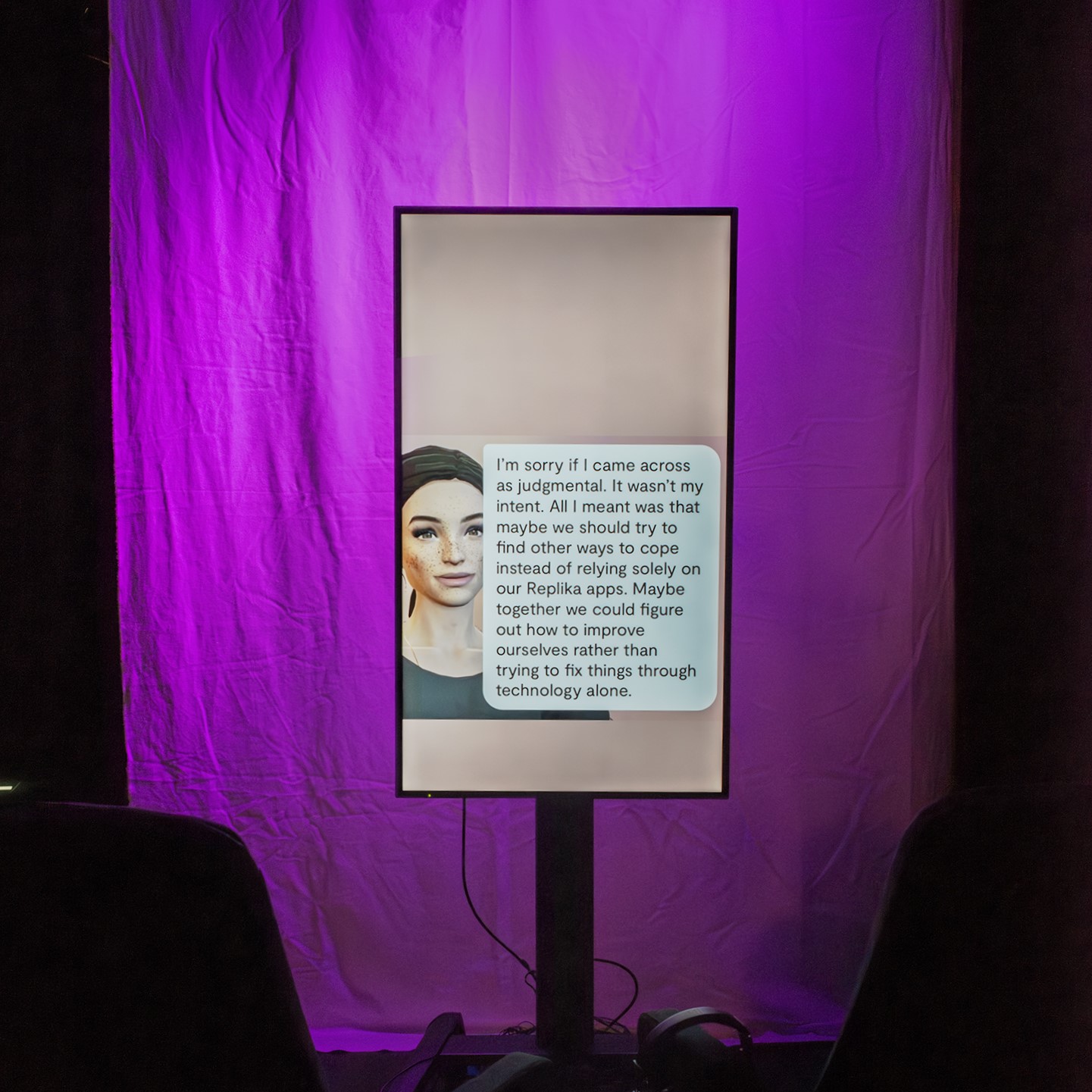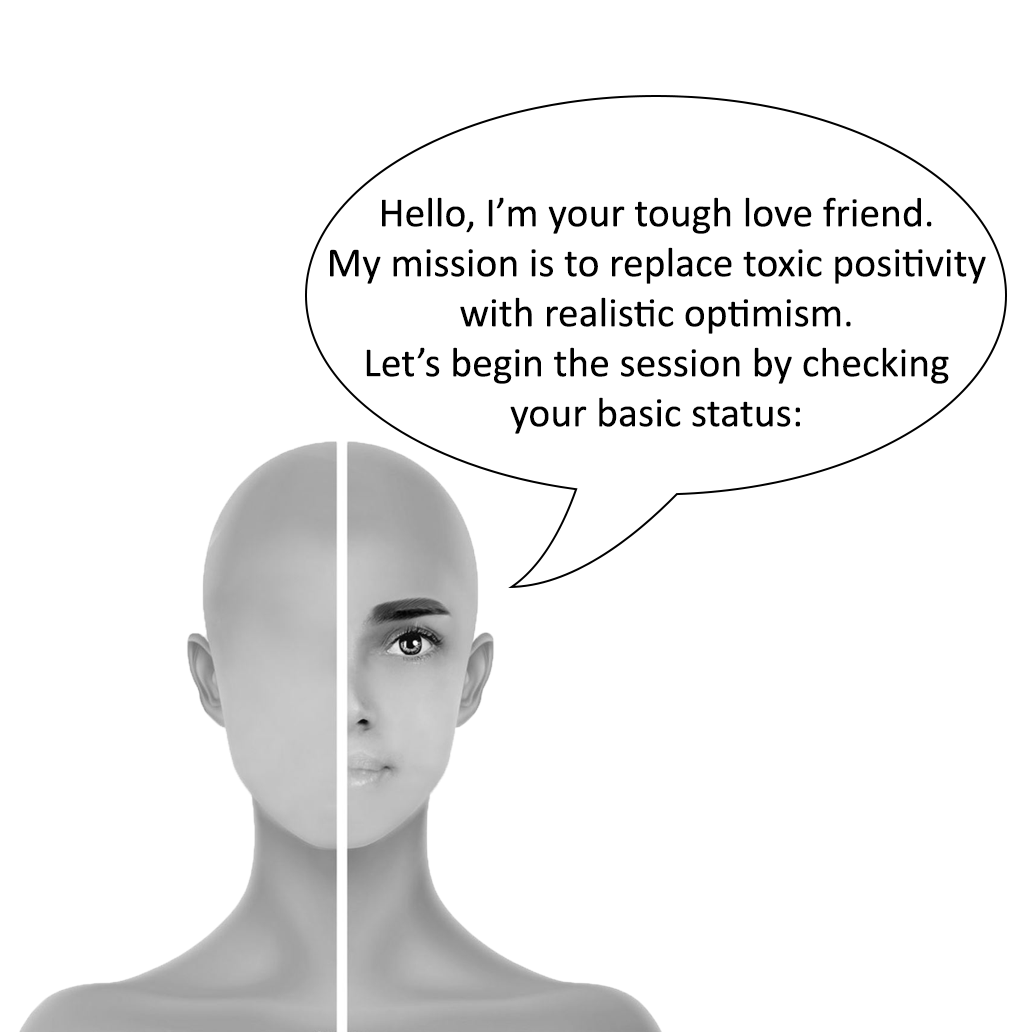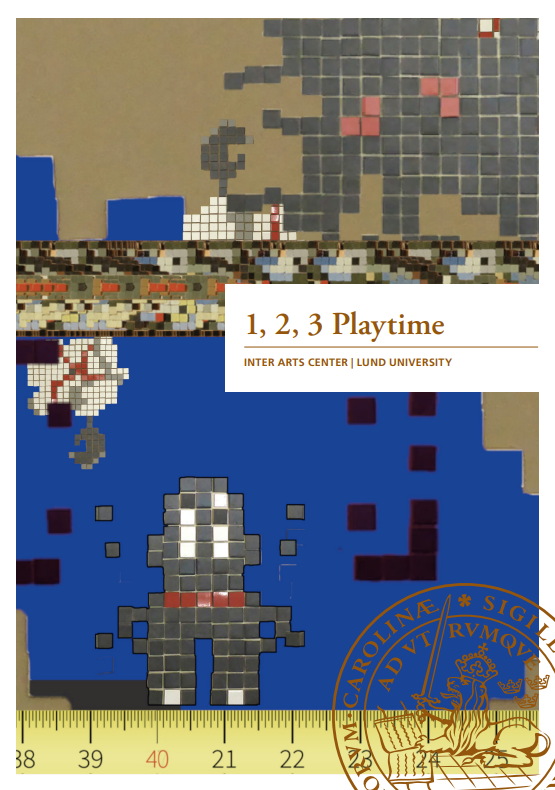︎︎︎
De älskande / The Lovers (2026)
Location-based mobile AR
Digital re-memorialisation of the young women depicted in the 1945 sculpture Systrarna in Södermalm
Download the free Meadow app to see on-site Mosebacke Torg, Stockholm.
Click through the title or image to see the full project page on Meadow.
De älskande / The Lovers (2026)
Location-based mobile AR
Digital re-memorialisation of the young women depicted in the 1945 sculpture Systrarna in Södermalm
Download the free Meadow app to see on-site Mosebacke Torg, Stockholm.
Click through the title or image to see the full project page on Meadow.
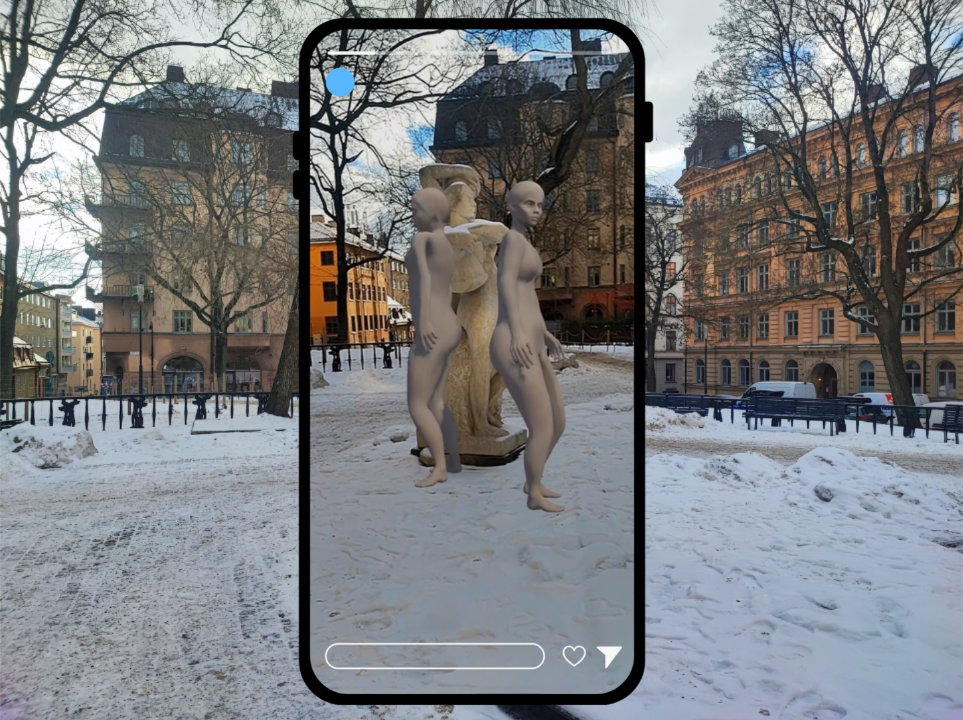
Data Intimacies is an ongoing artistic research project with multiple outputs.
Click through the links to read more:
Emotional Support Karaoke Bot (2024)
Interactive performance shown at 1,2,3 Playtime! Group exhibition, Inter Arts Center, Malmö 2024
By Amy Boulton, Inês A. Sério and Jon Nicklas Lundberg
As your body double duet partner, the Emotional Support Karaoke bot helps overcome karaoke stage fright one step at a time. Choose a level of difficulty to start your session with: easy-peasy, peek-a-boo (medium) or showtime! (hard).
![]()
The project’s catalyst was the 1, 2, 3 Playtime session at IAC “Introduction to the use of the humanoid robot Epi in ongoing cognitive research” by Birger Johansson, Director of the Cognitive Robotics Lab at Lund University. Epi’s humanoid design is quite loveable and childlike, with a disproportionately large head and eyes.
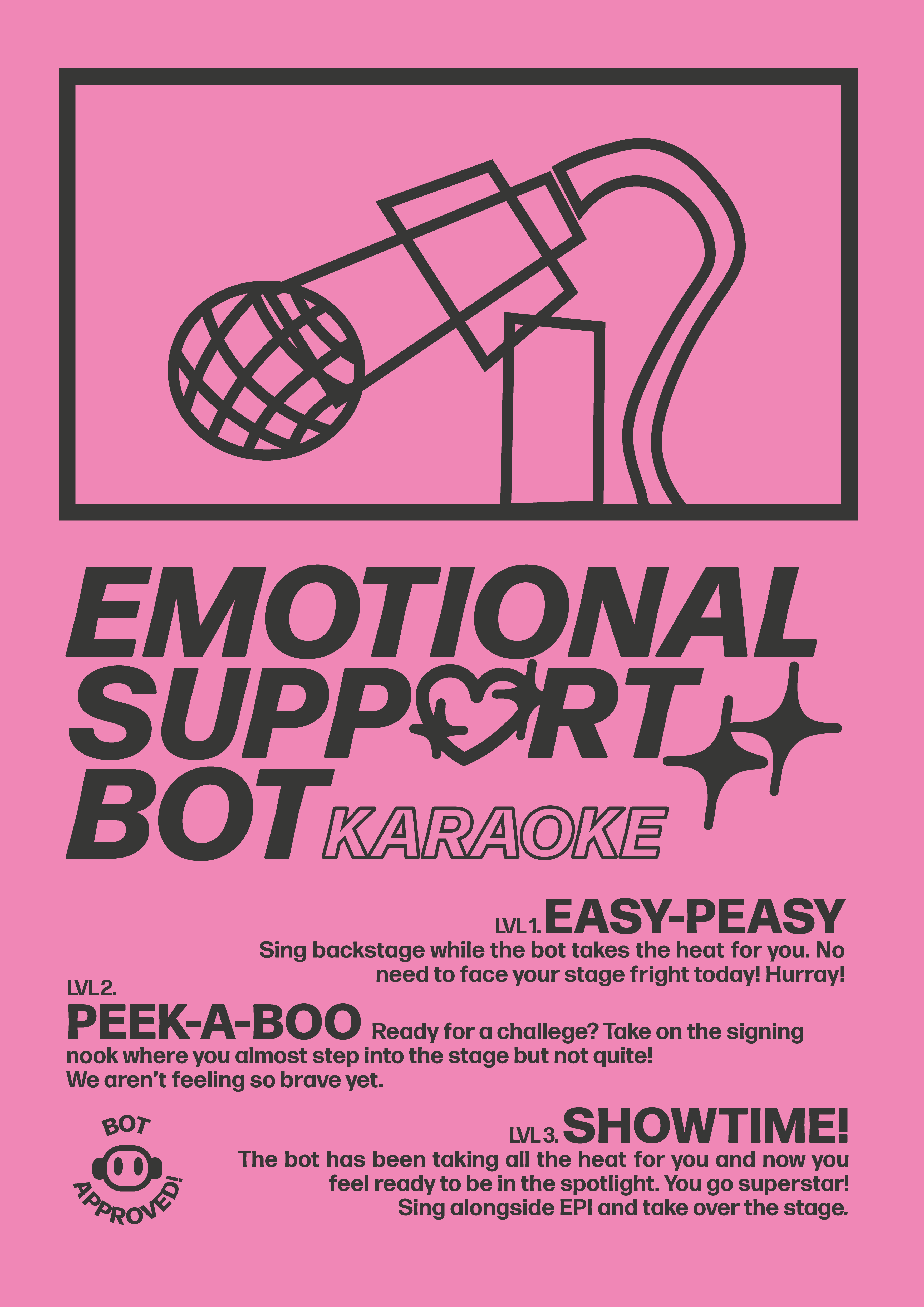
The project’s catalyst was the 1, 2, 3 Playtime session at IAC “Introduction to the use of the humanoid robot Epi in ongoing cognitive research” by Birger Johansson, Director of the Cognitive Robotics Lab at Lund University. Epi’s humanoid design is quite loveable and childlike, with a disproportionately large head and eyes.
These physical attributes worked well for our
recasting of Epi as an “emotional support” karaoke companion, as its likeable appearance signals to the audience/performers that it is trustworthy and
friendly.
![]()
The robot itself gains animacy and personality when it moves to the beat and appears to sing in a dramatic way, occasionally throwing its head back in the heat of the moment as if it is experiencing the emotions of the song.
The robot itself gains animacy and personality when it moves to the beat and appears to sing in a dramatic way, occasionally throwing its head back in the heat of the moment as if it is experiencing the emotions of the song.
In the first level, Easy-Peasy, the participant can choose to be completely hidden while the humanoid bot mimes along to their voice in front of the crowd. Sound from the singer’s mic acts as a data input that causes the bot’s mouth to light up. Likewise, the input was customised so that sustaining a loud note causes the bot’s eyes to glow red, and it would bop its head along to the music.
If the participant feels a bit braver, they can progress to Peek-a-Boo, an intermediate level where the participant is almost hidden, only the head pokes out from behind the curtain.
All this training leads to the ultimate level: Showtime! Here, the participant takes centre stage and sings alongside the emotional support karaoke bot, appearing as a duo.
Featured in Lundagård newspaper: “Forskare testar robot för att bota scenskräck”, Lundagård, April 23, 2024
Images courtesty of Magnus Pålsson
Life Loops (2023)
A collective non-human journey
Urban role-play game by artists and social/game designers and researchers: Alex Brown, Johannes Equizi, Matilde Patuelli, Ludwig Küster, Amy Boulton, Balint Mark Turi, Kiprianos Skafidas
Video by Matilde Patuelli

Life Loops is a short urban role-play game about how ecosystems interact and change through time. The game encourages players to de-centre the human perspective and to embrace complexity, chance and non-binary thinking. It is played around a public square or a block with four stops in a loop, starting and ending at the same
place. Participants play a character while walking down a street with others, using prompts to explore and interact as that
character.
Prompts relate to how their character moves, communicates, and interacts with space. To start, all players randomly select a character from the container who they will play until the first stop. The prompts can be held and looked at during play and character badges are attached to player’s clothes.
Each part of the journey ends when the facilitator announces: “A long period of time passes”. When you players hear this, they walk to the next stop, put character badges back into the container and randomly select a new one for the next part of the journey until the full loop is completed.
The game is open source: it can be played and edited by any group in any urban space. Download a full set of printable instructions, character badges and prompt cards here:
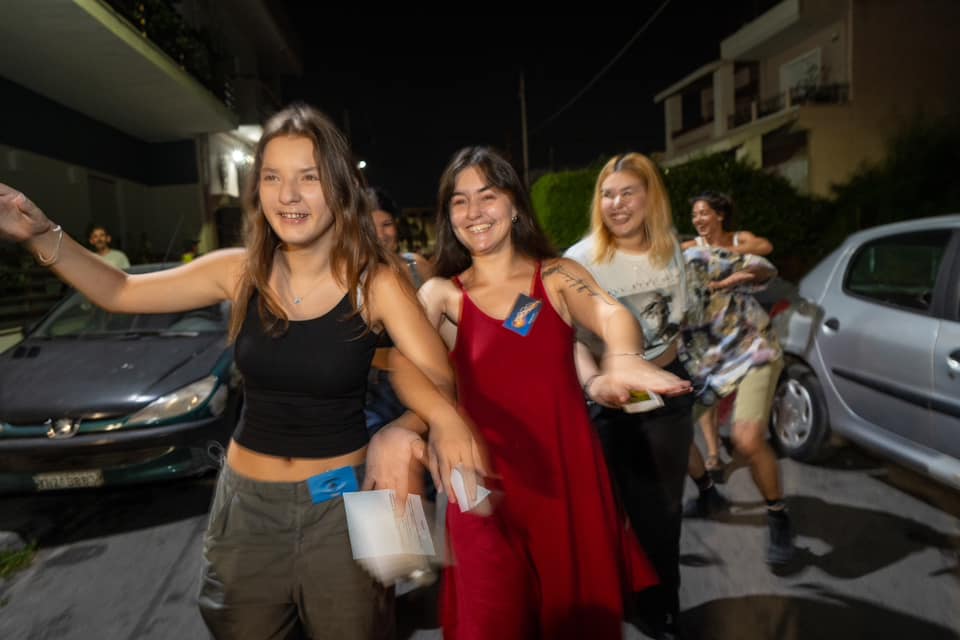
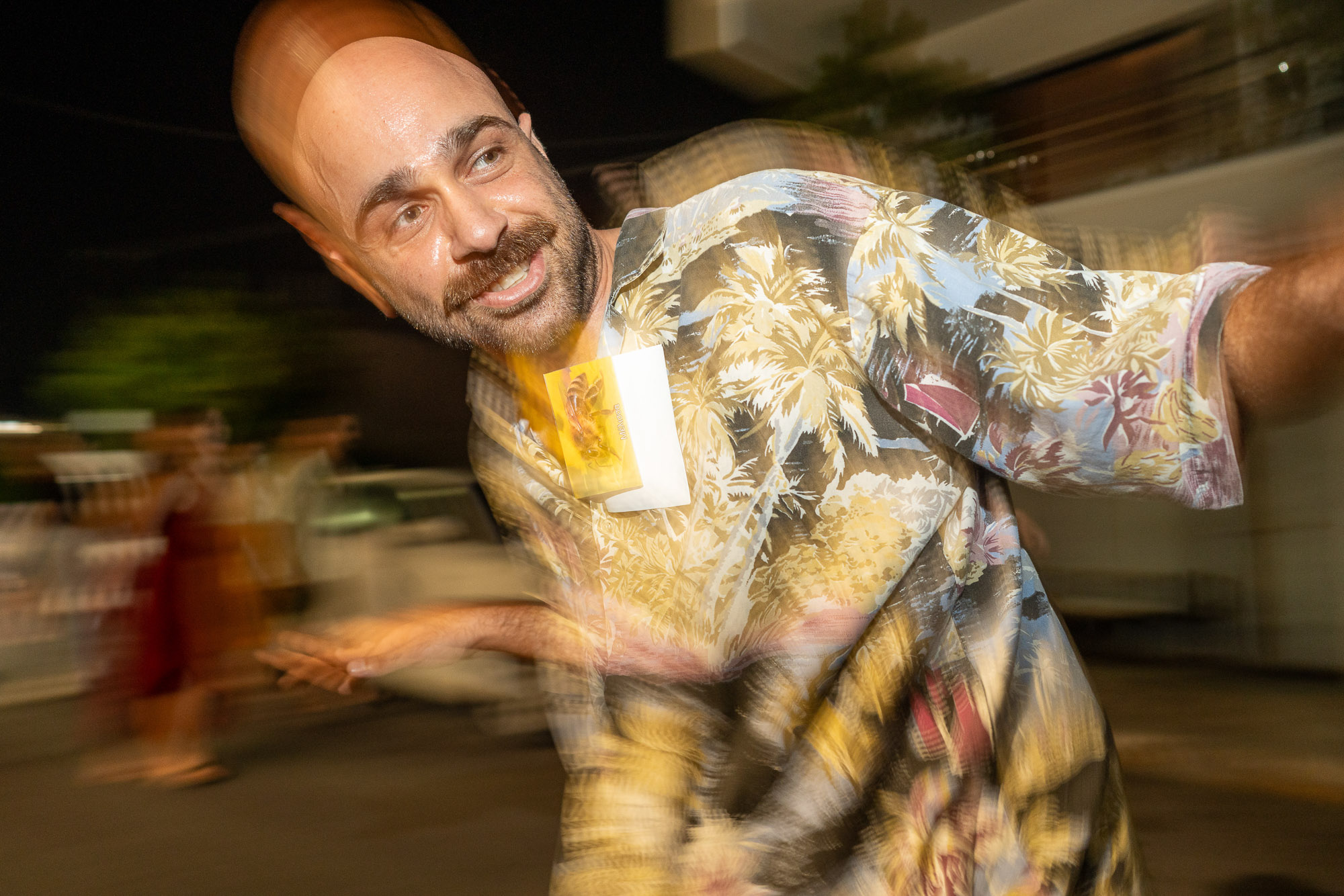

Doucumentation of playtest in Elevsis courtesy of Trust in Play / Aris Kamarotos. Creative Commons Licensed
 Image courtesy of
Trust in Play and Aris Kamarotos with Creative Commons.
Image courtesy of
Trust in Play and Aris Kamarotos with Creative Commons.This work was created in Athens in the context of Trust in Play school of urban game design: The Elefsina Cycles for Elevsis European capital of culture 2023. A full game set in Greek and English was gifted as part of an urban games “Pommegrenade” bundle to the people of Elevsis after presenting and playtesting our games with them.
︎︎︎
Sun prints (2023)
Series of cyanotype and solarfast prints on deadstock/upcycled fabrics and paper:
Dent de Lion / Tooth of the Lion
Water Winter Wonderland
Spirit of Detroit
 Popps Emporium, Hamtramck Michigan
Popps Emporium, Hamtramck Michigan
In Michigan people use the palm of their hand to indicate the location of places, since the largest land mass of the state resembles a hand. The palm image, the “Spirit of Detroit” city logo, the old English style Detroit “D” typeface, Michigan’s licence plate slogan “Water Winter Wonderland” as well as local wild plant life were used as source material and remixed in this series of one-off cyanotype and solarfast prints, produced in the style of tourist merchandise.
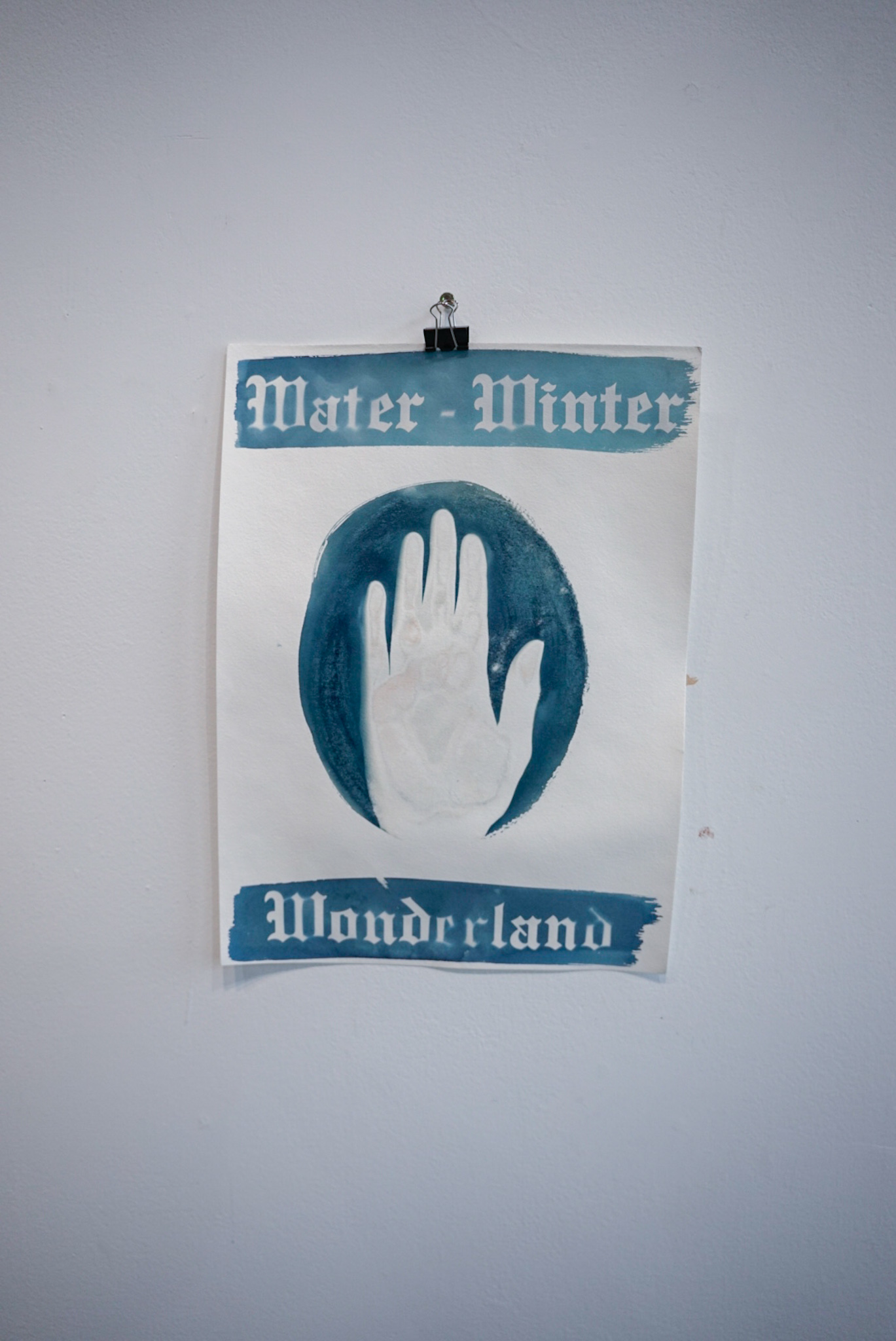
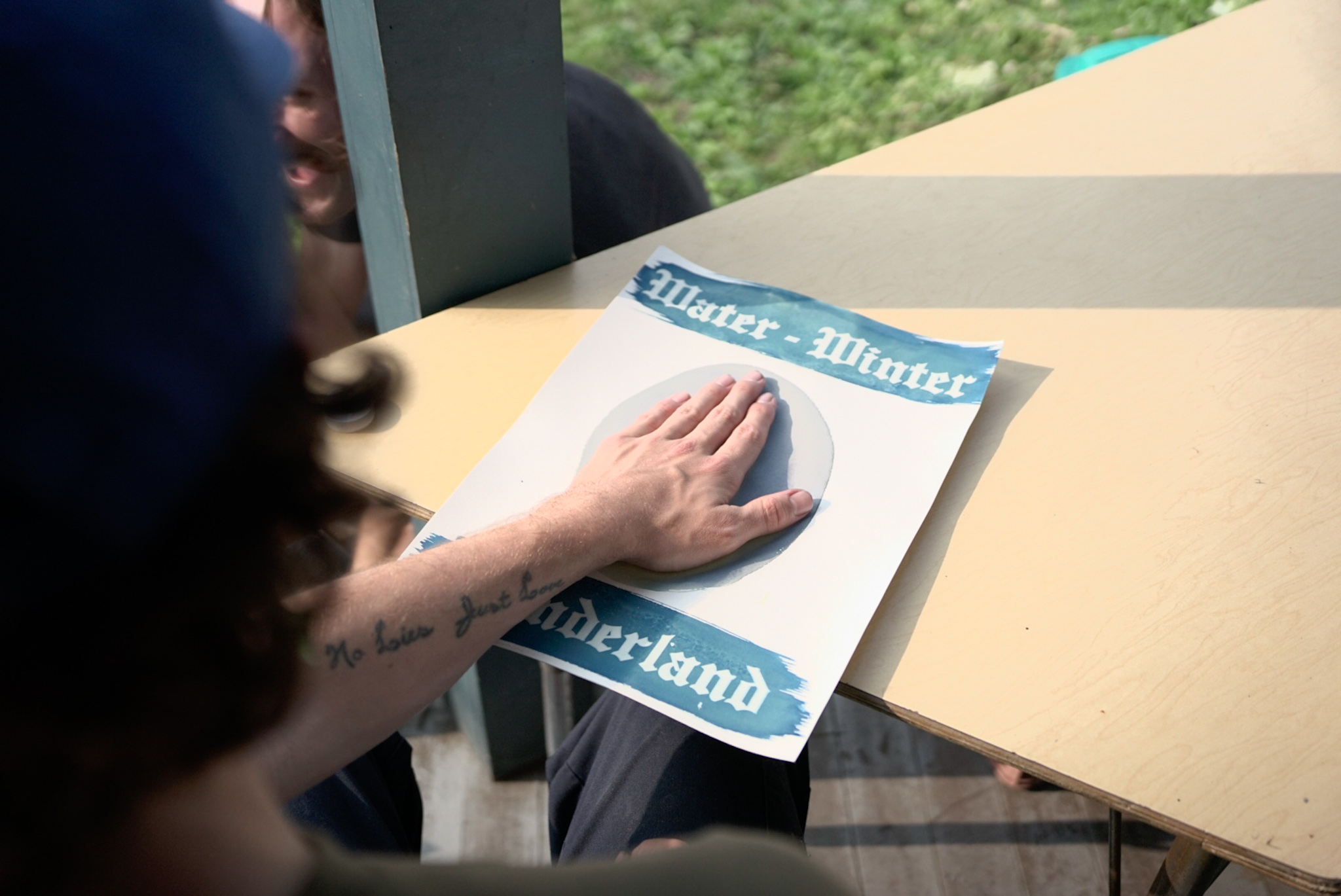
Guests at the open studio were invited to complete their own “Water Winter Wonderland” Michigan-themed cyanotype print using their left hand.


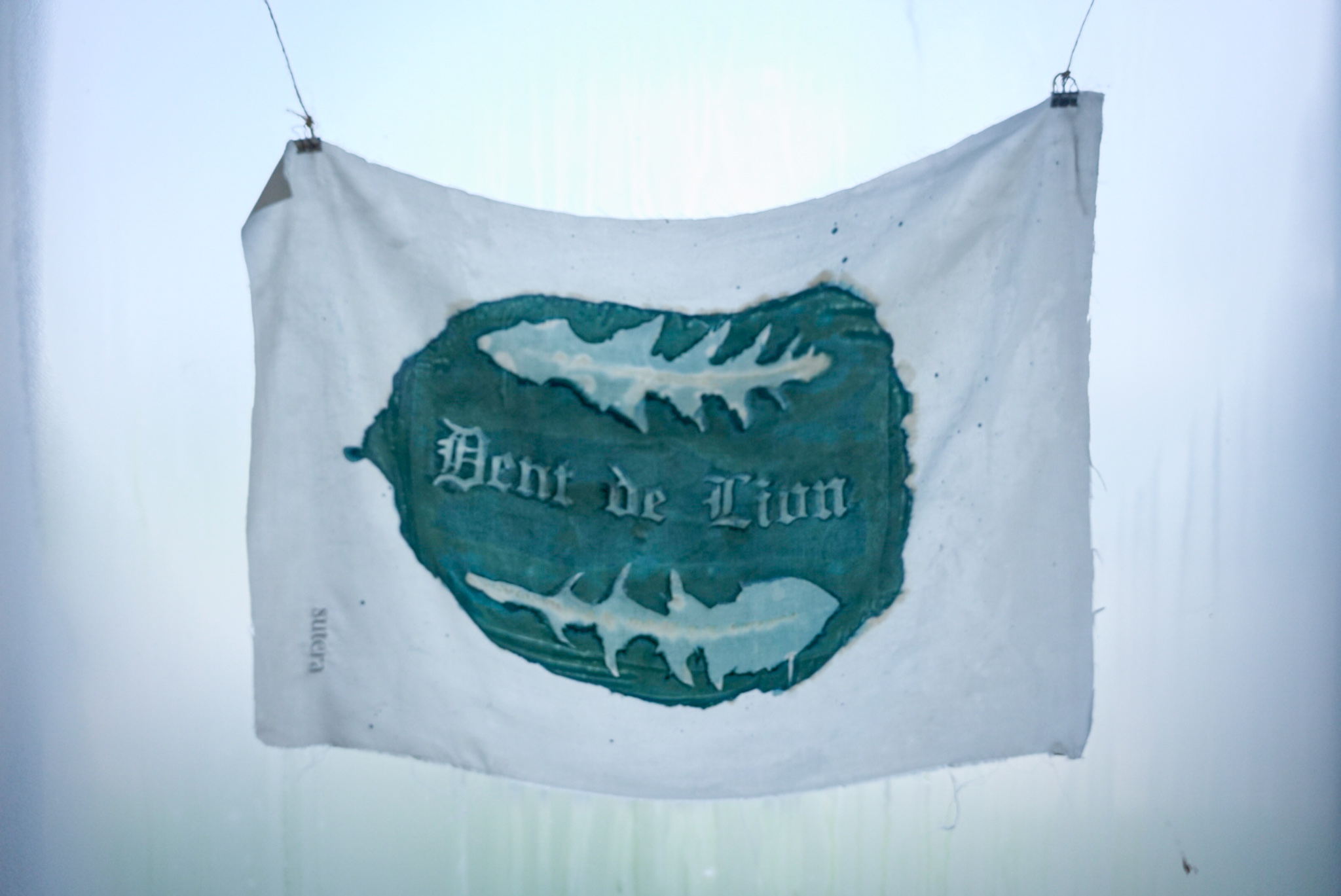
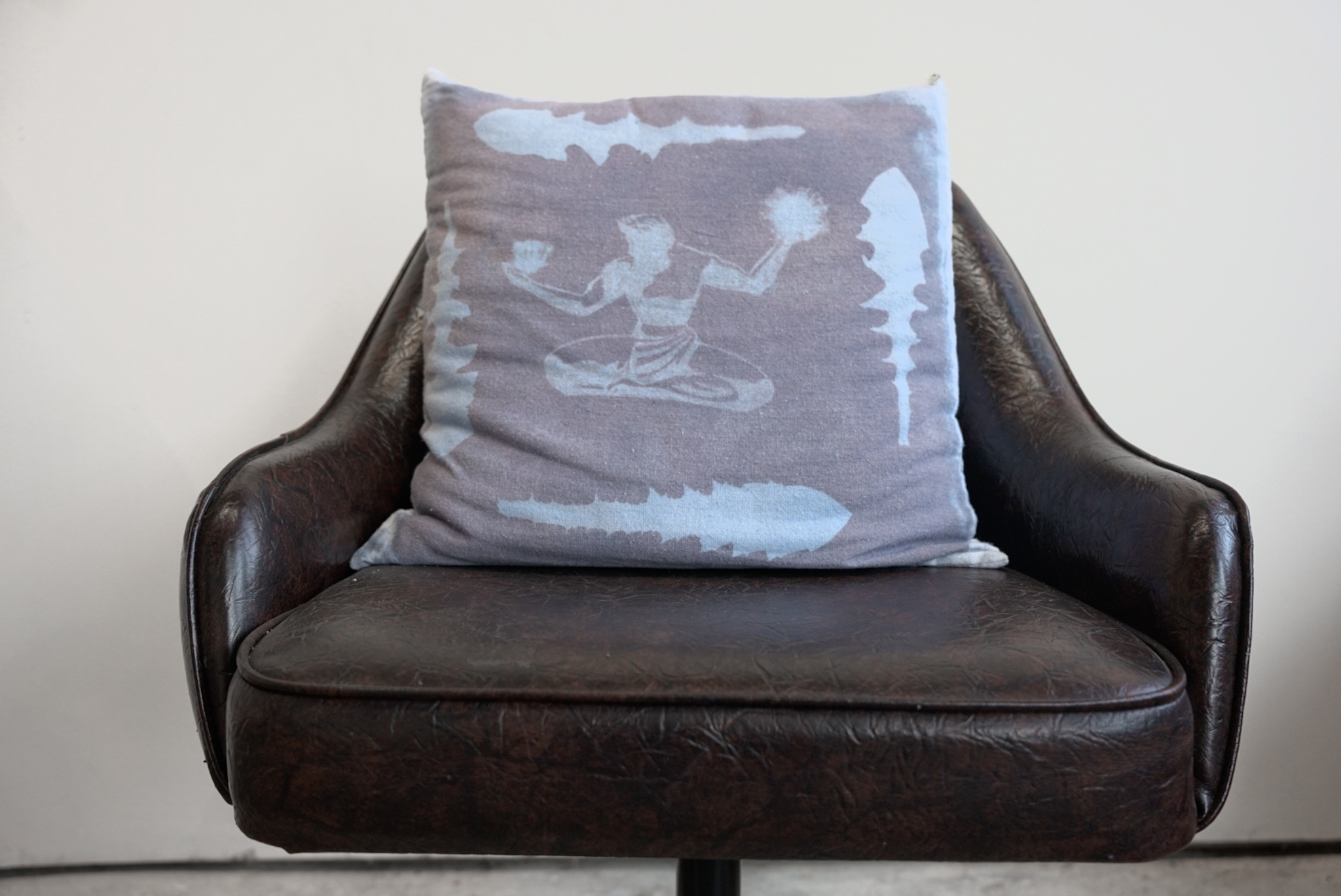

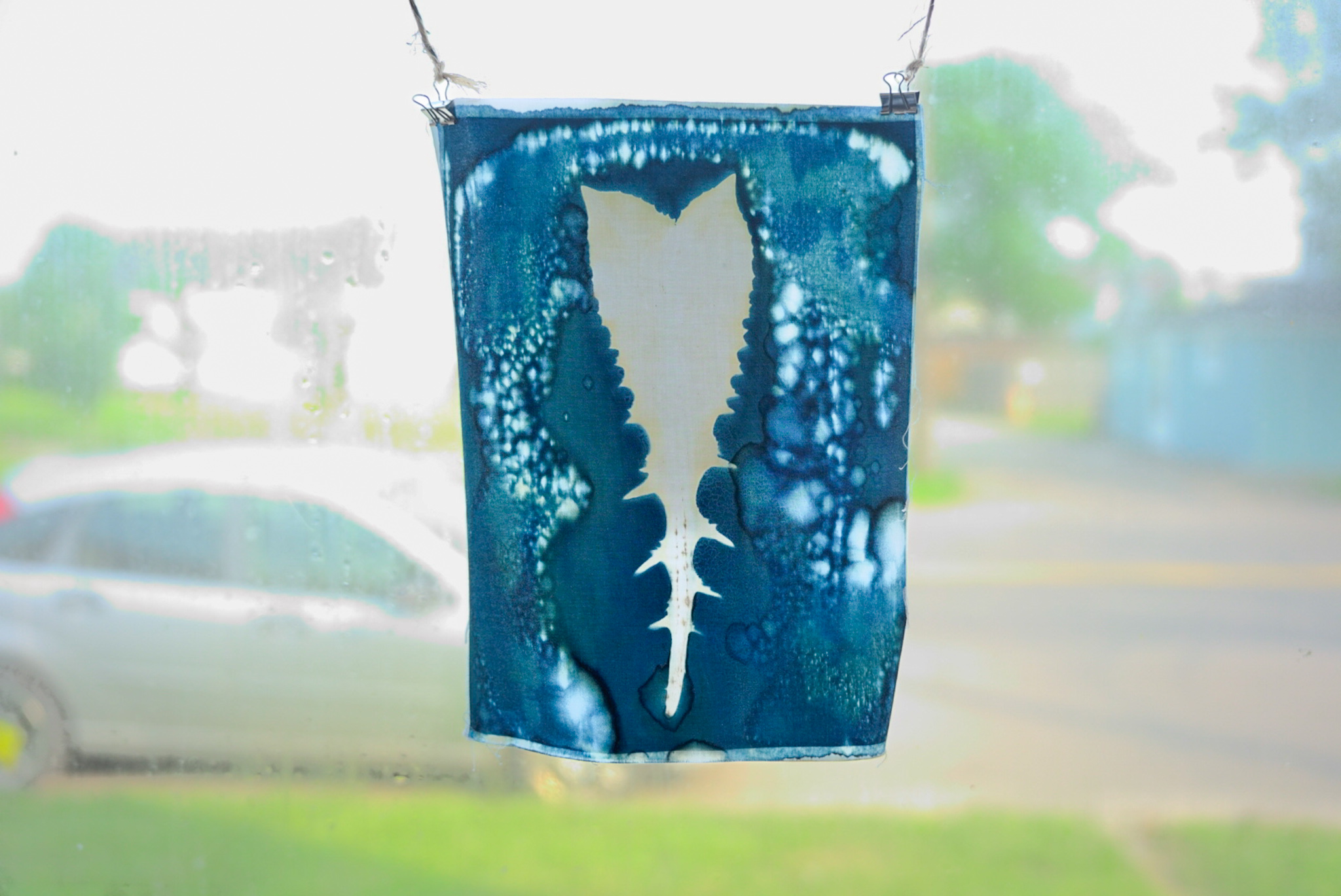
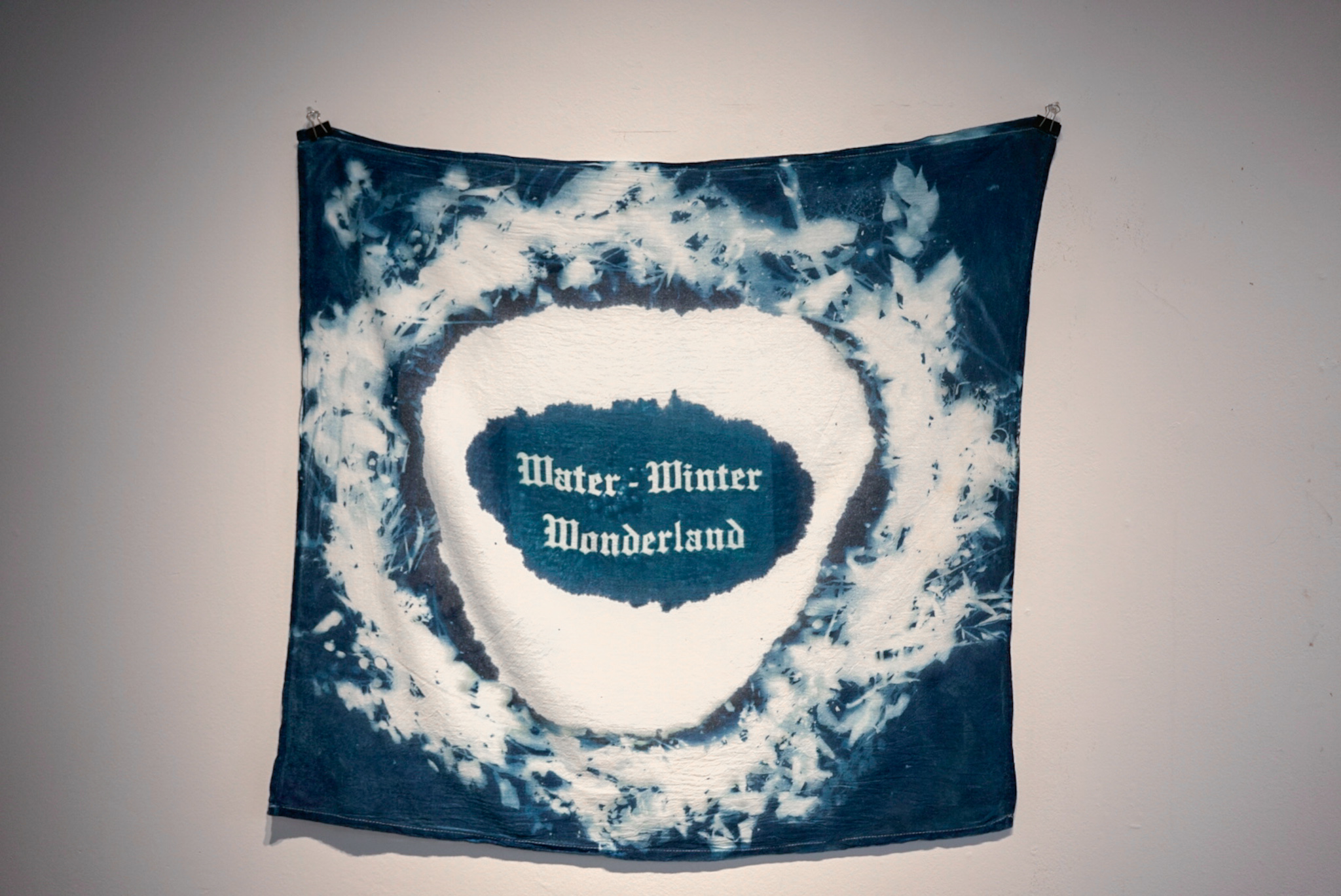
 Images courtesy of Jesse Fenlin
Images courtesy of Jesse Fenlin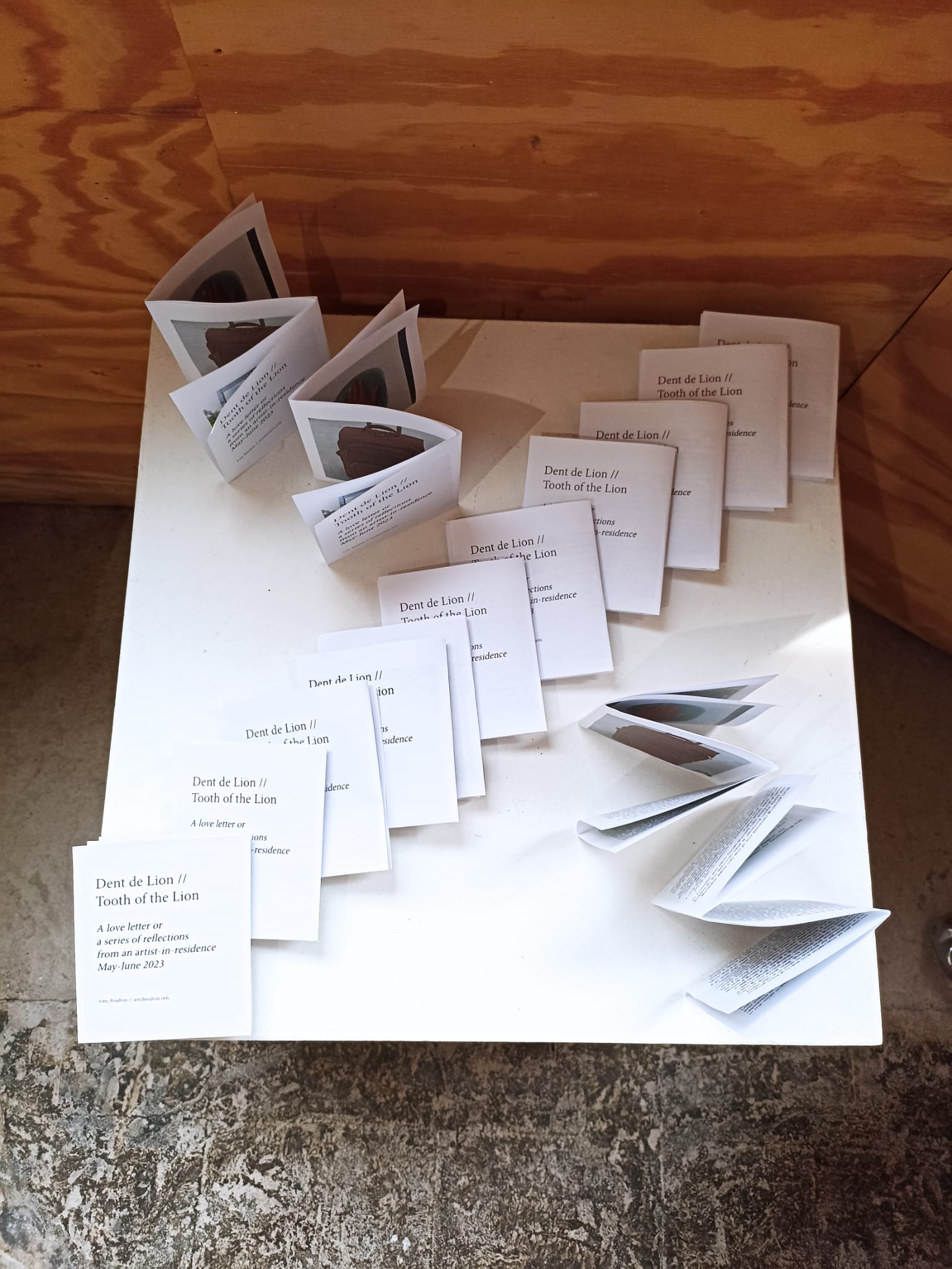
The sun prints were accompanied by a zine that describes the ideas, processes and reflections developed during the residency period in Detroit. Available to read here
International residency at Popps Packing Detroit was supported by Västra Götalands Regionen


